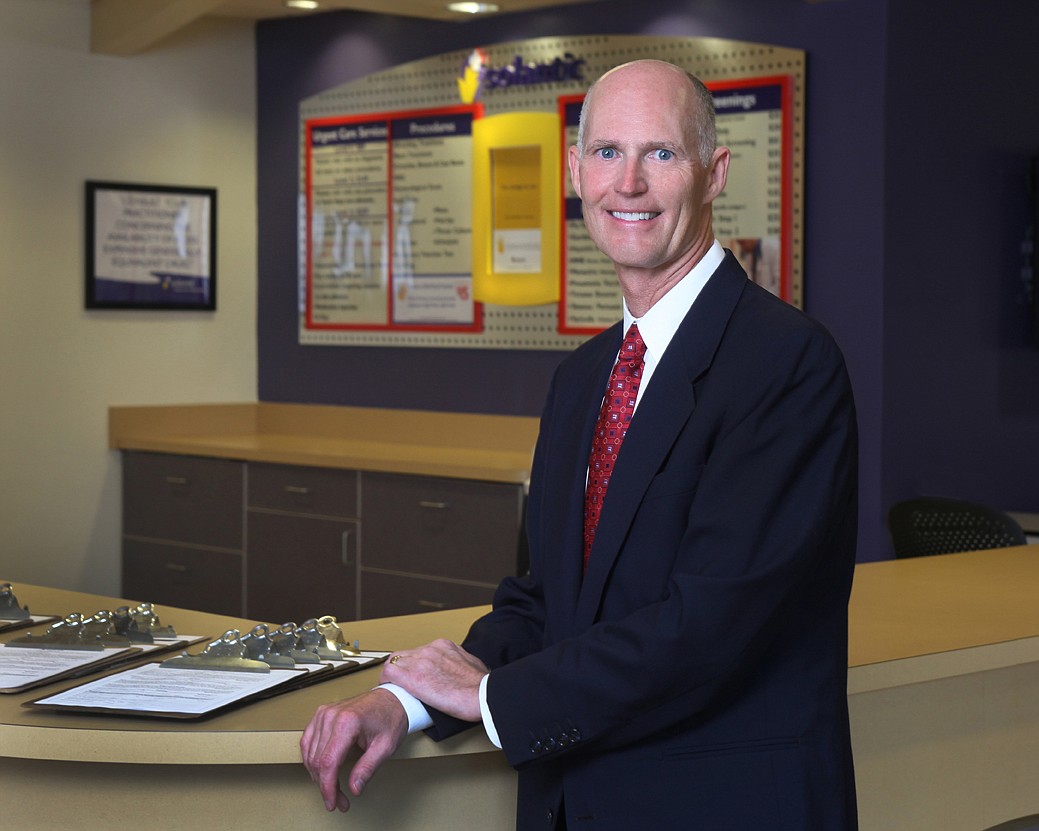- July 26, 2024
-
-
Loading

Loading

If you're like most people, following health-care legislation in Congress is akin to untangling fishing line.
So here's some advice from Richard Scott, the veteran health-care executive whose Naples-based organization, Conservatives for Patients' Rights, is spending $1 million a month to defeat proposals to nationalize health care.
Pick one part of the health care bill about which you feel strongly and then write to or e-mail U.S. Sen. Bill Nelson, the Democrat from Florida.
Nelson's support of the nationalization of health care puts him at odds with the majority of voters in Florida, many of whom are elderly, Scott says. “I'm surprised he can support a bill that will cut Medicare funding,” he says.
Indeed, Nelson's Web site says he supports a bill introduced in the U.S. Senate Finance Committee that will cost $829 billion over 10 years, funded in part by cuts to Medicare, the national health insurance program for older people.
Scott launched Conservatives for Patients' Rights earlier this year to rally supporters of free-market health care. He is the founder and former chairman and chief executive officer of Columbia/HCA, which under his leadership became the largest hospital chain in the world. He is now the chairman of Solantic, a network of affordable urgent-care centers based in Jacksonville.
But for many employers, Medicare is not their immediate concern. Depending on which of the five Congressional bills winding their way through committees is looked at, employer insurance mandates to cover employees could cost businesses as much as 8% of payroll, Scott says.
And that's just the beginning. “Once they start, there will be no stop to rising costs,” says Scott. That's because politicians and bureaucrats will decide what medical procedures will be covered, virtually guaranteeing a free-for-all. “Americans want lower health-care costs,” Scott says.
You can use Scott's Web site, CPRights.org, to view details of each plan, including how each will impact employers and taxes. “Don't get distracted by the hottest issue,” Scott suggests. “Get real focused.”
For example, business owners who are concerned about how current bills could drive up their labor costs can write to Nelson and other legislators about this specific issue. They should explain to legislators and to employees how those costs might force layoffs or other cutbacks while the economy remains weak.
When he launched his nonprofit organization on March 3, most observers predicted that a health-care bill would pass by June 15. But they didn't count on widespread opposition, which now has instant access to legislation via the Internet and can react more quickly than during the last effort. “The longer this takes, the less likely this will happen,” Scott says.
The recent renunciation of the Democrat agenda by voters in the gubernatorial races in Virginia and New Jersey sent a message to legislators that voters aren't supportive of the health care reforms now under consideration.
“Adults who vote have no interest in this health-care bill,” says Scott, who has commissioned his own polls. “If they had the votes, it would already be passed.”
Scott's prediction: “I don't believe they'll pass a bill.”
And if Congress doesn't pass a bill this year, legislators certainly won't bring it up in an election year in 2010. When that happens, Scott will disband his organization. “I don't want to do this for the rest of my life,” he chuckles.